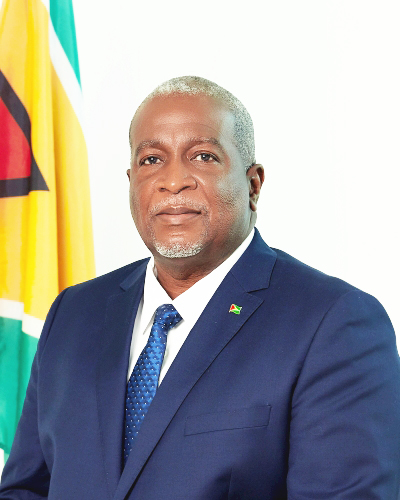Stating that at the midpoint of the agenda of 2030 Sustainable Development Goals, more than 50% of Guyana’s targets are off track, a portion of which are in reverse and worse there is a US$4 trillion financing gap for implementation, double to what it was in 2015, Prime Minister Mark Phillps has suggested that the application of science, technology and innovation could be the solution to challenges such as food security, poverty alleviation, and climate change.
He was speaking at a conference themed “Current Development Challenges; the Role of Science, Technology and Innovation” part of the ongoing Heads of State and Government Summit of the Group 77 and China in Havana, Cuba last week.
In his presentation, the retired brigadier recommended that there must be a continuous push for meaningful technology transfer even as efforts are ongoing to strengthen these platforms and programmes.
“Science, technology and innovation are crucial in addressing developmental challenges from food security, poverty alleviation, enabling energy security, resolving health related issues and accelerating economic transformation to effectively respond to the existential climate crisis,” he was quoted as saying.
According to the Prime Minister, the exploration of scientific and innovative technology could aid in sustainable development if executed wisely. He suggested that there should be greater international cooperation and support for local legislative frameworks to mitigate the ethical, legal and political considerations associated with artificial intelligence and cybersecurity concerns.
On this note Phillips welcomed the initiative to resume and revitalise the work of the consortium on Science, Technology and Innovation for the south (COSTIS).
He said that the initiative announced by United Nations Secretary General Antonio Guterres in August to establish a new scientific advisory board geared at informing member states of major breakthroughs in science and technology was laudable.
According to the Prime Minister, Guyana is working towards the development of a regulatory framework to effectively manage digitization. “Guyana is working to create the required legislative and regulatory environment, as well as the infrastructure to manage digitization, incorporating STEM and coding at the elemental levels of the school system and especially among girls, and laying the foundation for its first smart city,” he was quoted as saying.
Phillips remains convinced that strategic deployment of technology and innovation has the ability to resolve and minimise trade-offs among the goals critical to scale up and accelerate the implementation of the 2030 Agenda.
He called for continuity and digital inclusion among countries in order to reduce inequalities in achieving digitalization globally as this warrants the role of multi-stakeholder partnerships. Phillips said that multi- stakeholder partnerships in this area of focus can foster long-term investment in support of science, technology and innovation initiatives especially in developing countries, through innovative and blended financial support.
Due to the ravaging COVID-19 pandemic the world is confronted with an ecological crisis, inequitable global economic systems and increased geo-political tensions, he opined.
Cuban President Miquel Diaz- Canel Bermudez is the Chair of the Group of 77 and China.




